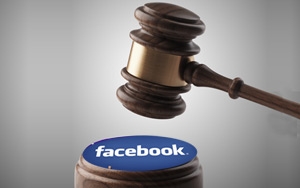Appeals Court OKs Facebook's $20 Million Sponsored Stories Settlement
- by Wendy Davis @wendyndavis, January 7, 2016
 A federal appellate court has upheld Facebook's $20 million settlement of a class-action lawsuit stemming from "sponsored stories" ads.
A federal appellate court has upheld Facebook's $20 million settlement of a class-action lawsuit stemming from "sponsored stories" ads.
The 9th Circuit Court of Appeals rejected arguments by parents who contended the deal should be scrapped on the grounds that it allows Facebook to use minors' names and images in ads. The parents argued the settlement enables Facebook to violate laws in seven states, including California, that prohibit companies from using minors' names and photos in ads without their parents' consent.
But the appellate judges said it's not clear whether Facebook's ad program actually violated California's law. The judges added that the settlement offers "more protection for minors from Facebook's advertising practices than existed before."
The settlement requires Facebook to pay $15 each to around 600,000 users who were featured in “sponsored stories” -- ads featuring users' names and images and shown to their friends. The deal also requires Facebook to pay several million dollars to various nonprofits and organizations.
Facebook also agreed to revise its terms of service to require that users give permission for their names and photos to be shown in ads. Users under 18 must represent that at least one parent agrees.
Facebook recently stopped selling “sponsored stories” ads, but now allows marketers to show people's likes to their friends, next to ads.
The settlement, which was approved by U.S. District Court Judge Richard Seeborg, resolved a class-action lawsuit alleging that Facebook's sponsored stories violates a California law about endorsements. That law says companies need adults' permission before using their names or images in ads. When minors' names or images are used in ads, companies must obtain parental consent. The measure provides for penalties of $750 per violation.
While the lawsuit dealt with California's law, six other states also prohibit companies from using minors' name and images in ads without obtaining permission from parents.
Some people who objected to the settlement argued that cash awards of $15 were too little, given that the law provided for higher damages. But the 9th Circuit said that the $15 figure was reasonable, given that Facebook users experienced "minimal (if any) harm."


